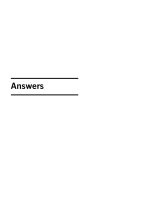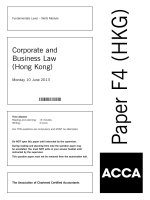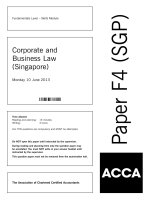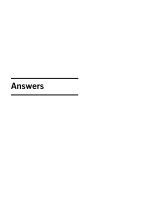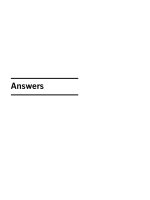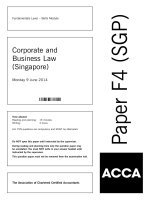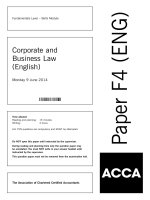Acca f4 corporate and business law singapore 2011 jun questions
Bạn đang xem bản rút gọn của tài liệu. Xem và tải ngay bản đầy đủ của tài liệu tại đây (2.01 MB, 4 trang )
Corporate and
Business Law
(Singapore)
Tuesday 7 June 2011
Time allowed
Reading and planning:
Writing:
15 minutes
3 hours
ALL TEN questions are compulsory and MUST be attempted.
Do NOT open this paper until instructed by the supervisor.
During reading and planning time only the question paper may
be annotated. You must NOT write in your answer booklet until
instructed by the supervisor.
This question paper must not be removed from the examination hall.
The Association of Chartered Certified Accountants
The Institute of Certified Public Accountants of Singapore
Paper F4 (SGP)
Fundamentals Level – Skills Module
ALL TEN questions are compulsory and MUST be attempted
1
In relation to the Singapore legal system and statutory interpretation, explain each of the following rules:
(a) the literal rule;
(2 marks)
(b) the ejusdem generis rule;
(2 marks)
(c) the golden rule;
(3 marks)
(d) the mischief rule.
(3 marks)
(10 marks)
2
In relation to the law on business organisations, compare and contrast a limited liability partnership and a
company.
(10 marks)
3
In relation to the law on misrepresentation:
(a) explain:
(i) fraudulent misrepresentation;
(ii) negligent misrepresentation; and
(iii) innocent misrepresentation.
(6 marks)
(b) state TWO situations in which a person to whom a misrepresentation has been made may be barred from
rescinding the contract.
(4 marks)
(10 marks)
4
In relation to the law of contract, explain each of the following:
(a) unliquidated and liquidated damages;
(4 marks)
(b) the test for remoteness of damage.
(6 marks)
(10 marks)
5
In relation to company law, explain the following:
(a) the legal effect of a company’s memorandum of association and articles of association;
(5 marks)
(b) the procedure to amend the memorandum of association and articles of association of a company.
(5 marks)
(10 marks)
2
6
In relation to companies in financial difficulty, explain:
(a) judicial management; and
(5 marks)
(b) how judicial management may benefit the applicant of the judicial management order.
(5 marks)
(10 marks)
7
In relation to company law, explain and distinguish between the offences of fraudulent trading and wrongful
trading.
(10 marks)
8
John wishes to sell his car. On 1 February 2011, he placed an advertisement in the Straits Times which provided
details of the car, including its age, colour, model and condition. In addition, he also wrote, ‘Car will be sold to the
first buyer who offers me $45,000. Sale price is valid for two weeks only. Tel: 67909999.’
On 5 February 2011, John received a telephone call from Mary, who inquired about the car. She was responding to
the advertisement in the Straits Times and she asked what was the highest offer he had received for the car. John
replied that he had received an offer of $40,000 but would not sell it for anything less than $43,500. Mary made
an appointment to inspect the car.
After spending some time considering the price and value of John’s car, Mary decided that she would buy John’s car
at his asking price of $43,500. On 12 February, she called John to let him know of her decision but this time he was
not in. She left the following voicemail message for him, ‘John, I have thought it through and I am agreeable to your
offer price of $43,500. Please call me back at my handphone 98909900 to make arrangements for the payment
and transfer of the car.’
John has now changed his mind about selling the car.
Required:
Advise Mary whether there is a binding contract for John to sell the car to Mary at $43,500.
(10 marks)
9
The Lim family incorporated Good Build Pte Ltd (‘Good Build’) as the vehicle for their renovation business. For many
years, the business of Good Build was conducted with Mr and Mrs Lim and their son, Luke, as directors. Mr Lim died
last year. Mrs Lim became managing director of Good Build because she had promised her husband she would take
over his position as managing director. However, Mrs Lim was a shadow of her former self after her husband’s death
and she lost interest in running Good Build. She signed whatever cheques and documents Luke asked her to sign
and went along with all of Luke’s decisions. Luke, who was under pressure to settle his debts, subsequently
perpetrated a fraud on Good Build. Good Build was wound up as an insolvent company and the liquidator wished to
bring a civil action against Mrs Lim.
Required:
Discuss whether Mrs Lim has breached any duty as managing director of Good Build.
(10 marks)
3
[P.T.O.
10 Carol worked for Win Pte Ltd (‘Win’) for 20 years. She was personal assistant to Jack, the chief executive officer and
chairman of Win. Over the years, Jack rewarded her with small numbers of shares in Win. To date, Carol owns 2%
of the shares in Win. Jack recently hired Jill as the company’s information technology (IT) manager. Jill could not get
along with Carol. Jack took Jill’s side and asked Carol to resign from the company. Carol knew that Jack had made
some mistakes in the past. First, he hastily purchased a new IT system without evaluating what other systems there
were in the market and the new IT system turned out to be an expensive failed experiment. Second, he did not attempt
to recover a substantial amount of debts owed by Win’s customers. After Carol resigned, she wrote a letter to the board
of directors of Win to ask them to sue Jack to recover the losses he caused Win to incur. The board of directors ignored
her letter.
Required:
In relation to the law on minority protection, discuss the option available to Carol under the Companies Act
(Cap 50), which allows her to bring an action against Jack in Win’s name.
Note: Please omit any discussion of breach of directors’ duties.
(10 marks)
End of Question Paper
4

